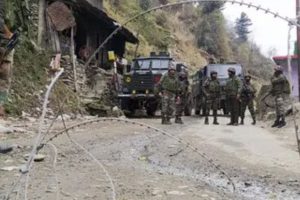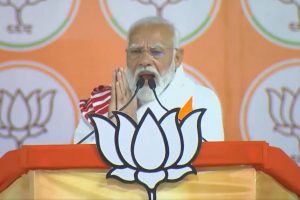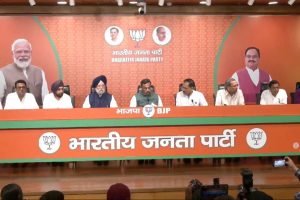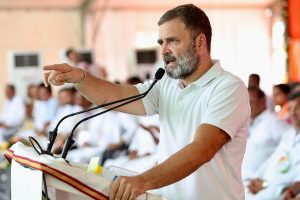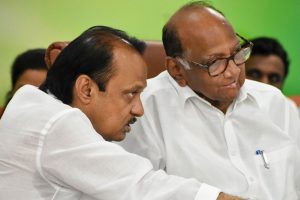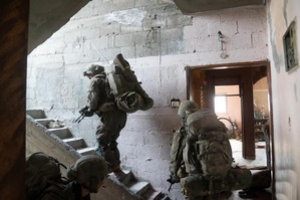It is tragic irony of history that the custodians of peace have become the proprietors of war. The Big Five, to fulfill their selfish agenda had converted the Security Council into a ‘private club’, ‘an exclusive nuclear club’, and at best a debating society making it irrelevant in the modern world.
The big five, especially the United States, have been dominating the world affairs as well as the United Nations for the last seven decades and, unless it conformed to US State policy, no action could be taken by the Security Council. Edward Luck, an international scholar said, “The last thing the US wants is an independent UN throwing its weight around” as the United States always wanted a feeble United Nations to forestall UN interference with, or resistance to, American policies.”
This was corroborated by Daniel Patrick Moynihan, former US Ambassador to the United Nations, who said, “The Department of State desired that the United Nations prove utterly ineffective in whatever measures it undertook. The task was given to me, and I carried it for- ward with not inconsiderable success”.
The Big Five have misused the forum as a springboard as well as a shield for their individ- ual misadventures knowing that the UN will not be able to rest- rain or take any action against them ~ they will use their veto power. With the help of organizations which are outside the UN system like the NATO, the Big Five have waged unjustified wars at will without bothering about the UN and the world opinion.
US military operations dur- ing the prolonged Cold War and invasions of Vietnam, Iran, Iraq, Syria and Afghanistan have not only caused miseries and death to millions of innocent people but also made the world more unsafe.
The monumental failure and ineffectiveness of the Security Council which was entrust- ed with the legislative and the executive powers of the UN has outraged the consciousness of the world evoking widespread criticisms from political scientists, legal luminaries, academicians, the civil society, the Secretary General and member-states of the UN and also world leaders including the Presidents of the Critics (foremost among them is the British historian Paul Kennedy) have accused the Security Council of being inef- fective, biased and also corrupt.
The Council’s handling of the Kashmir issue and the Pales- tine question showed its bias, incompetence and lack of understanding of the real issues. In the case of Kashmir, there
was a gross miscarriage of justice instead of redressing the grievance, it rewarded the
aggressor and punished the victim as if the rape victim is responsible for the rape. Similarly, there were hundreds of cases where the Security Council failed to deliver justice.
Moreover, the Security Council and the UN have done very little to achieve disarmament, stop nuclear proliferation and reduce or eliminate nuclear weapons. Hence, there is a world-wide outcry for a rational reform of the UN, especially the Security Council.
Talks of reform of the Security Council began from the San Francisco Conference itself in 1945 when a number of delegates led by Australia demanded deletion of the provision for the Veto Power given to the Permanent members but the Big Five tore up the draft Charter and threatened the Conference say- ing ‘Charter with Veto power or no Charter.’
During the last three decades, proposals and counter proposals for UNSC reform have poured in from the G-20 nations, world leaders, academic and research institutions and from within the UN itself.
Yet, while the whole world has been crying for reform which involves amendment of the UN Charter, nothing could be done because of the intransigence and lack of unanimity of the Permanent members.
The UN Charter itself is to be blamed for the stalemate. Article 108 states: “Amendments to the present Charter shall come into force for all Members of the United Nations when they have been adopted by a vote of two-thirds of the members of the General Assembly and ratified in accordance with their respective constitutional processes by two-thirds of the Members of the United Nations, including all the permanent members of the Security Council.” This provision made any reform of the UNSC an impossibility.
Reform of the UNSC involves five issues ~ (i) cat- egory of member- ship, (ii) the ques- tion of veto power, (iii) regional representation, (iv) size of enlarged Council and working methods and (v) Security Council ~ General Assembly relationship. These issues need to be addressed because of dramatic changes in geopolitics during the last few de- cades. Keeping the major economic and political powers like the G-4 countries ( Japan, Germany, India and Brazil) and the emerging economies of Africa like Nigeria and South Africa permanently out of the decision-making process of the Security Council has created an absurd situation calling for urgent reform.
As stated by Ban Ki-Moon, former UN Secretary General, “The U.N. Security Council reform, being debated since two decades is too long overdue and the necessary expansion must be made considering how much the world has changed.”
In 2017, the G-4 nations gave a reasonable solution to the stalemate agreeing to be induct- ed as permanent members and temporarily forego the veto power. If accepted, the ten largest military powers and nine out of 10 largest economies would have shared seats in the UNSC.
In 2005, the UN Secretary General, Kofi Annan (known as the Kofi Annan Plan), based on the recommendations of a team of advisers, urged the UNSC for a consensus ‘for creating six new permanent members, plus three new nonpermanent members for a total of 24’.
In the same year, the G-4 nations issued a joint statement mutually backing each other’s claim for permanent status along with two African countries.
The Big Five, never willing to give up their veto power and position, reluctantly announced their respective positions. China supported a stronger represen- tation of developing countries including India but opposed inclusion of Japan.
Russia lent strong support for inducting India as a perma- nent member. The UK and France essentially supported the G-4 position ~ expansion of UNSC with inclusion of India, Brazil, Germany and Japan as permanent members and more African countries as members
The United States supported permanent membership for India and Japan. It will be seen that there has been a broad consensus on India as a permanent member of UNSC but clubbing her with other nations has been a spoiler.
Hundreds of papers and proposals to reform the Security Council and the United Nations as a whole beginning from the San Francisco Conference, 1945 have continued to the present today.
A number of international institutions like the Carnegie Endowment for International Peace are actively engaged for the cause of reform of the United Nations and a new world order.
But the stalemate continues and there is no sign of ending. As Paul Kennedy, the British his- torian has said, “Everyone ag- rees that the present structure is flawed. But consensus on how to fix it remains out of reach.”
Any reform of the United Nations and the Security Council may not see the light of the day in the near future.
But there is always a silver lining in the dark clouds. The Security Council has failed and betrayed the world.
But the rest of the United Nations System ~ the autonomous Specialized Agencies, the Special Programmes and Funds and the Inter-Governmental International Organizations have been functioning fairly well even though there is an urgent need for reform in many of them, especially the IMF and the World Bank.
No doubt, together, they have contributed immensely to the economic, social and cultur- al development and interna- tional cooperation and understanding making the world a global village.
(The writer is a former Dy. Comptroller &Auditor General of India and a former Ombudsman of Reserve Bank of India. He is also a writer of several books and can be reached at brahmas@gmail.com)


